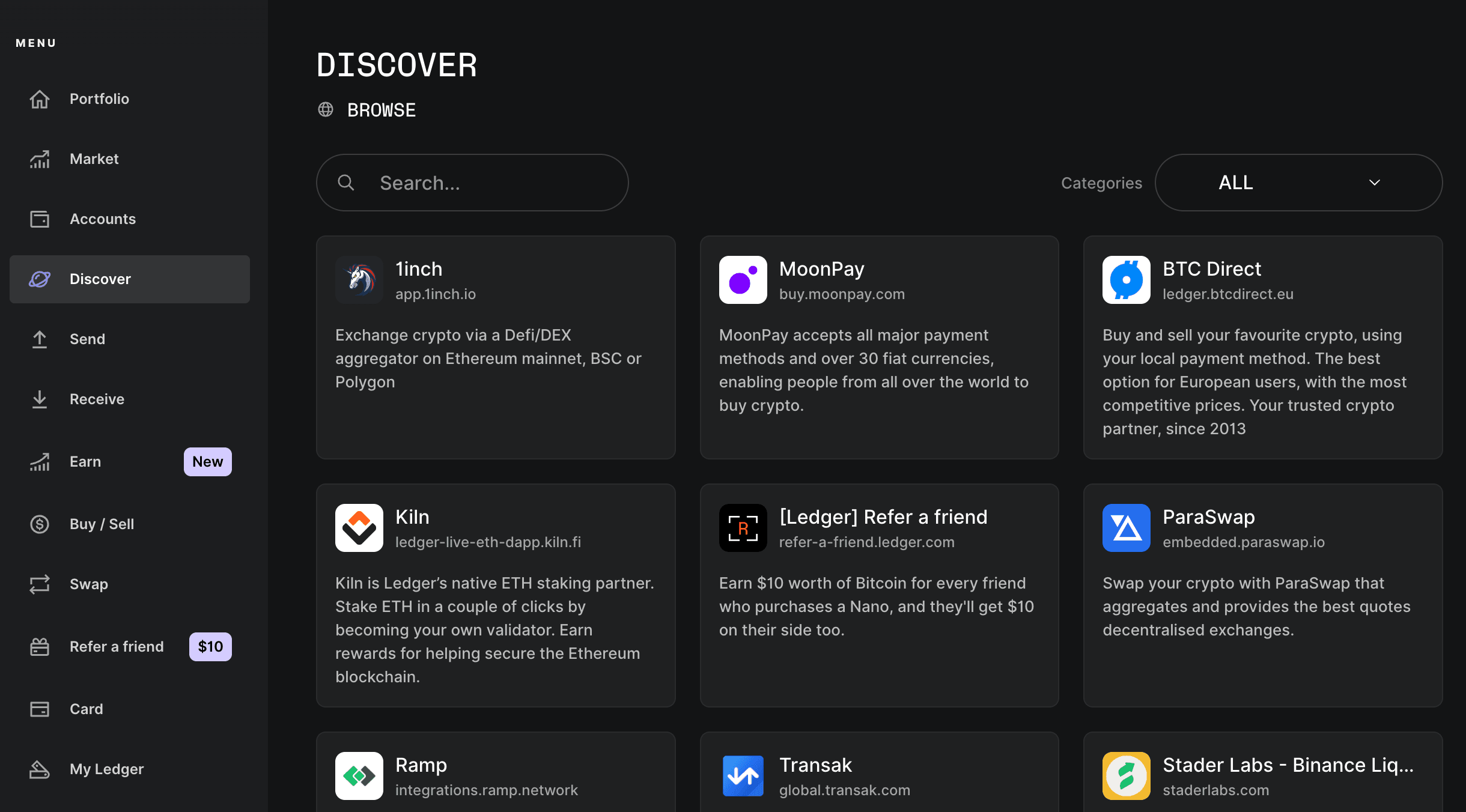What are the Discover section and Live Apps
Ledger Wallet aims to be more than a keyholder— it’s a comprehensive platform crafted by Ledger.
It allows users to manage, transact, and nurture their digital assets securely. Both from Desktop and Mobile, it serves as a door to the broad crypto ecosystem. And this is where your apps and the Discover section comes into place.

Nested within the interface of Ledger Wallet, our Discover section offers a curated selection of apps, called Live Apps, to our audience. It provides the assurance to our user that those apps have been tested and can interact with their Ledger device. The curated apps are chosen by our business team.
All other Live Apps are accessible through a search Bar with automatic connection to your wallet, Clear Signing with signer security. This service is free for users and for partners
In short, Live Apps provide convenience and security for Ledger Wallet users when interacting with web3 projects.
They are integrated in Ledger Wallet using the dApp Browser or the Ledger Wallet API (if more granualirty is required).